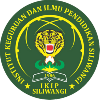STUDENTS' PERSPECTIVE AND EXPERIENCE ON THE USE OF ENGLISH AS MEDIUM OF INSTRUCTION IN INTRODUCTION TO BUSINESS CLASS: A QUALITATIVE INTERVIEW STUDY
DOI:
https://doi.org/10.22460/project.v4i2.p230-243Abstract
References
Ahmed, M., Aftab, M., & Yaqoob, H. (2015). Students’ Motivation toward English Language Learning at Undergraduate Level. Advances in Language and Literary Studies, 6(3), 230–238. https://doi.org/10.7575/aiac.alls.v.6n.3p.230
Alvi, E., Iqbal, Z., Masood, F., & Batool, T. (2016). A Qualitative Account of The Nature and Use of Self-Regulated Learning (SRL) Strategies Employed by University Students. Australian Journal of Teacher Education, 41(8), 40–59. https://doi.org/10.14221/ajte.2016v41n8.3
Bargiela-Chiappini, F., & Zhang, Z. (2013). Business English. In B. Paltridge & S. Starfield (Eds.), The Handbook of English for Specific Purposes (pp. 193–212). Wiley-Blackwell.
Benzie, H. J. (2010). Graduating as a “native speakerâ€: International students and English language proficiency in higher education. Higher Education Research and Development, 29(4), 447–459. https://doi.org/10.1080/07294361003598824
Castleberry, A., & Nolen, A. (2018). Thematic analysis of qualitative research data: Is it as easy as it sounds? Currents in Pharmacy Teaching and Learning, 10(6), 807–815. https://doi.org/10.1016/j.cptl.2018.03.019
Christenson, S. L., Wylie, C., & Reschly, A. L. (2012). Handbook of Research on Student Engagement. In Handbook of Research on Student Engagement (Issue June 2012). https://doi.org/10.1007/978-1-4614-2018-7
Crawshaw, R. (1984). Information, awareness and context as factors in foreign language learning. British Journal of Language Teaching, 22(2), 67–73. https://doi.org/10.1017/s0261444800014609
Creswell, J. W., & Poth, C. N. (2016). Qualitative Interview Studies: Learning Through Experience. In Foundations for Research (4th ed.).
DeMarrais, K. (2004). Foundations for Research. In K. DeMarrais & S. D. Lapan (Eds.), Foundations for Research (pp. 51–68).
Duangploy, O., & Shelton, M. L. (2000). Using a Systems Approach to Develop Lifelong Learning Skills in Accounting for Business Combinations. Journal of Education for Business, 76(2), 81–86. https://doi.org/10.1080/08832320009599957
Hopper, M., & Stave, K. A. (2008). Assessing the Effectiveness of Systems Thinking Interventions in the Classroom. 26th International Conference of the System Dynamics Society. https://digitalscholarship.unlv.edu/sea_fac_articles/200
Hu, J., & Wu, P. (2020). Understanding English language learning in tertiary English-medium instruction contexts in China. System, 93. https://doi.org/10.1016/j.system.2020.102305
K, A. G., & Kurukkan, A. (2016). Self-Regulated Learning A Motivational Approach for Learning Mathematics. International Journal of Education and Psychological Research, 5(3), 60–65.
Kankaanranta, A. (2008). Business English Lingua Franca in intercultural (business) communication. Language at Work - Bridging Theory and Practice, 3(4), 28–38. https://doi.org/10.7146/law.v3i4.6193
Kankaanranta, A., & Louhiala-Salminen, L. (2010). “English? - Oh, it’s just work!â€: A study of BELF users’ perceptions. English for Specific Purposes, 29(3), 204–209. https://doi.org/10.1016/j.esp.2009.06.004
Köksal, D., & Tercan, G. (2019). English as medium of instruction and international posture: From the perspective of students. Journal of Language and Linguistic Studies, 15(1), 362–375. http://www.jlls.org/index.php/jlls/article/view/4/5
Koondhar, M., Elizabeth, M. A., Siming, I. A., & Umrani, T. H. (2018). Language Learning Approaches : Unity in Diversity. Advances in Language and Literary Studies, 9(6), 34–37. https://doi.org/dx.doi.org/10.7575/aiac.alls.v.9n.6p.34them
Kucharcikova, A., Miciak, M., Malichova, E., Durisova, M., & Tokarcikova, E. (2019). The Motivation of Students at Universities as a Prerequisite of the Education’s Sustainability within the Business Value Generation Context. Sustainability, 11(20). https://doi.org/10.3390/su11205577
Lauder, A. (2008). the Status and Function of English in Indonesia: a Review of Key Factors. Makara Human Behavior Studies in Asia, 12(1), 9. https://doi.org/10.7454/mssh.v12i1.128
Lourenco, D., & Ferreira, A. I. (2019). Self-regulated learning and training effectiveness. International Journal of Training and Development, 23(2), 117–134. https://doi.org/10.1111/ijtd.12149
Low, P. (2020). An Investigation of English Usage in Careers of Thai Graduates with a Business Administration Degree. Shanlax International Journal of Education, 9(1), 27–32. https://doi.org/10.34293/education.v9i1.3416
Macaro, E. (2018). English Medium Instruction. In Studi e ricerche (pp. 15–20). https://doi.org/10.14277/6969-227-7/SR-13-1
Macaro, E. (2020). Exploring the role of language in English medium instruction. International Journal of Bilingual Education and Bilingualism, 23(3), 263–276. https://doi.org/10.1080/13670050.2019.1620678
Palinkas, L. A., Horwitz, S. M., Green, C. A., Wisdom, J. P., Duan, N., & Hoagwood, K. (2015). Purposeful Sampling for Qualitative Data Collection and Analysis in Mixed Method Implementation Research. Administration and Policy in Mental Health and Mental Health Services Research, 42(5), 533–544. https://doi.org/10.1007/s10488-013-0528-y
Peters, H. (2014). Global English online – a case study of a distance learning course in a business context. Language and Literacy, 16(1). https://doi.org/10.20360/g28300
Pritasari, A., Reinaldo, H., & Watson, C. W. (2018). English-medium instruction in Asian business schools : a case study. Journal of Multilingual and Multicultural Development, 1–13. https://doi.org/10.1080/01434632.2018.1458855
Sankar, G., & Suresh Kumar, S. P. (2016). English for Employability and Empowerment- a Study. 4(July), 100–103. https://doi.org/10.14662/IJELC2016.053
Sari, F. M., & Wahyudin, A. Y. (2019). Undergraduate students’ perceptions toward blended learning through instagram in english for business class. International Journal of Language Education, 3(1), 64–73. https://doi.org/10.26858/ijole.v1i1.7064
Schaaf, M. Van der, Baartman, L., Prins, F., Oosterbaan, A., & Schaap, H. (2013). Feedback Dialogues That Stimulate Students ’ Reflective Thinking. Scandinavian Journal of Educational Research, 57(3), 227–245. https://doi.org/10.1080/00313831.2011.628693
Simmons, E. S. (2016). Eyes that See and Ears that Hear : A Case for Qualitative Research. International Forum, 19(2), 28–46.
Talaue, F. G., & Kim, M. K. (2020). Investigating the advantages of english medium instruction (EMI) in the indonesian workplace. LEARN Journal: Language Education and Acquisition Research Network, 13(2), 321–334.
Tsou, W., & Kao, S.-M. (2017). Overview of EMI Development. In W. Tsou & S.-M. Kao (Eds.), English as a Medium of Instruction in Higher Education (pp. 3–20). https://doi.org/10.1007/978-3-319-51976-0_8
Yuliandasari, A., & Kusriandi, W. (2015). Students’ Perception on English Club Extracurricular in Speaking Practices at Madrasah. ELT Perspective, 3(2). https://doi.org/10.33603/perspective.v3i2.1670
Yusof, N., Awang-Hashim, R., Kaur, A., Malek, M. A., Shanmugam, S. K. S., Manaf, N. A. A., Yee, A. S. V., & Zubairi, A. M. (2020). The role of relatedness in student learning experiences. Asian Journal of University Education, 16(2), 235–243. https://doi.org/10.24191/AJUE.V16I2.10308











